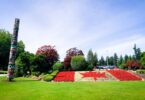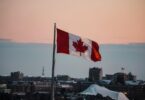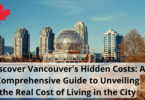Montreal is known for its vibrant cultural scene and diverse population.
But what exactly makes this city such a melting pot of cultures?
Let us dive into the rich tapestry of cultural diversity that makes Montreal a truly unique and fascinating destination to explore.
Montreal is the largest city in the province of Quebec, Canada, and is home to a population of over 1.7 million people.
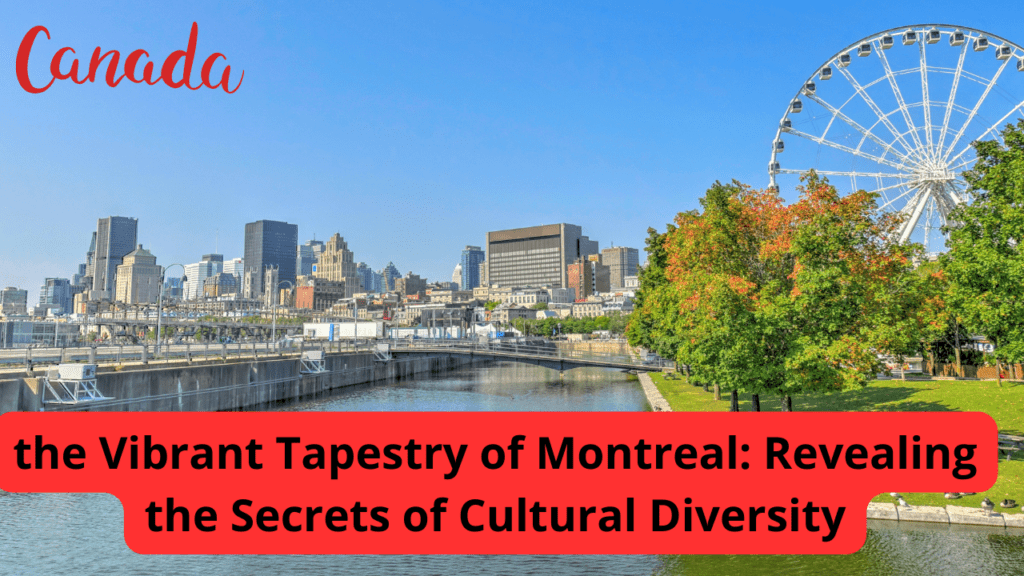

It is often referred to as the cultural capital of Canada, and for good reason. The city boasts a multicultural society, with a wide range of ethnicities, languages, and traditions coexisting harmoniously.
In this article, we will take a closer look at the various cultural communities that contribute to the vibrant tapestry of Montreal.
From the historic roots of the French and British influences to the thriving immigrant communities from all corners of the globe, Montreal offers a truly unique and diverse cultural experience.
Join us as we explore the fascinating cultural diversity that makes Montreal a city like no other.
What is Cultural Diversity?
Cultural diversity refers to the coexistence of various cultural groups within a society. It is characterized by the presence of different ethnicities, nationalities, languages, religions, and traditions. In the context of Montreal, cultural diversity is a significant aspect of the city’s identity.
As one of Canada’s largest and most multicultural cities, Montreal is home to a diverse population comprising both visible minority communities and indigenous cultures. The city’s multiculturalism is reflected in its vibrant neighborhoods, where residents from all corners of the world live, work, and celebrate their cultural heritage.
This diversity enriches the social fabric of Montreal, contributing to its unique character and fostering intercultural relationships. Montreal’s commitment to cultural diversity is evident in its public services, including health promotion initiatives and policies that address the specific needs of immigrant populations.
By recognizing and respecting cultural differences, Montreal aims to create a welcoming city that prioritizes the well-being and development of all its residents, regardless of their cultural background.
Background of Montreal
Montreal, located in the province of Quebec, Canada, is a city with a rich historical and cultural background. Founded in 1642, it is one of the oldest cities in North America and has played a key role in the country’s development.
Situated on the Island of Montreal at the confluence of the Saint Lawrence and Ottawa rivers, its geographical location has made it a strategic and thriving hub for trade and commerce throughout history.
Over the years, Montreal has witnessed significant milestones, from its early days as a fur trading post to its rise as an industrial and economic powerhouse. As it grew, the city became a melting pot of diverse cultures, attracting immigrants from all over the world.
Today, Montreal is renowned for its cultural diversity, making it one of Canada’s most multicultural cities. This diversity is reflected in its vibrant neighborhoods, rich arts and entertainment scene, and the variety of languages spoken, including English, French, and many others.
As a city that celebrates and embraces its multicultural identity, Montreal has become a symbol of inclusivity and acceptance. Its unique blend of cultural influences has fostered intercultural relationships and the development of innovative ideas and initiatives.
Montreal’s commitment to multiculturalism is evident in its policies and services, catering to the diverse needs of its residents. By recognizing cultural diversity as a strength, the city has created a welcoming and vibrant environment for people from all walks of life.
Cultural Communities in Montreal
Montreal is a city known for its rich cultural tapestry, with a diverse population that contributes to its vibrant and cosmopolitan atmosphere. The city is home to a vibrant array of cultural communities, each with its own unique traditions, languages, and customs.
From the historic Irish community in Griffintown to the vibrant Caribbean community in Little Burgundy, Montreal’s cultural communities add depth and flavor to the city’s social fabric. These communities have brought their diverse heritage and perspectives, enriching Montreal’s art, music, cuisine, and festivals.
In Montreal, cultural diversity is celebrated, and residents from all backgrounds are encouraged to express and preserve their unique cultural identities. This commitment to inclusivity and cultural preservation has made Montreal a truly multicultural city, fostering a sense of unity and appreciation for the diverse heritage that shapes the city’s identity.

best health insurance in Canada
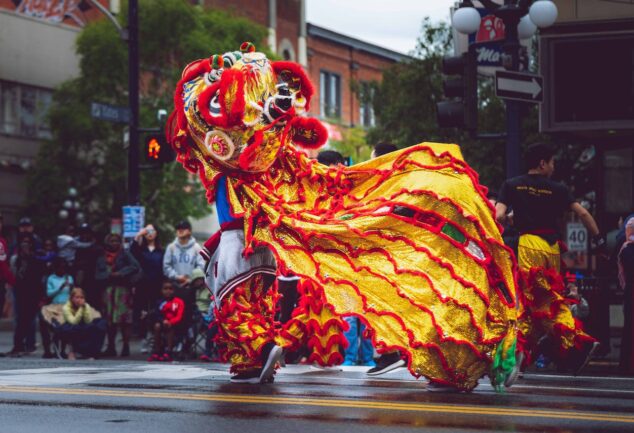
Cultural Exchange Programs in Vancouver: A Comprehensive Guide
Visible Minorities in Montreal
Montreal is an energetic and cosmopolitan city, boasting a substantial population of visible minorities. Its cultural communities represent a significant portion of the residents, adding to the city’s diverse tapestry.
With people coming from various parts of the globe, these cultural communities play a significant role in shaping the city’s character. Their traditions, languages, and viewpoints blend harmoniously to form a diverse and multicultural mosaic.
Among the immigrant populations in Montreal are communities from Central Africa, Eastern Africa, and Spanish-speaking countries, all of which have had a profound impact on the city’s arts, cuisine, music, and overall cultural heritage.
Despite the cultural significance and contributions of visible minority communities in Montreal, they also face certain challenges. Cultural differences and the issue of adaptation fall within the scope of these challenges.
The question of adaptation strategies and integration into Canadian society can be complex, but efforts are being made to support the needs of these communities. Public services and social service centers are accountable for the delivery of culturally sensitive and adequate health promotion initiatives.
Moreover, policies on health and primary healthcare services are being developed to address the unique needs of immigrant populations in Montreal. The city’s commitment to diversity and inclusion ensures that visible minorities are valued and provide an enriching cultural experience for all residents.
Indigenous Culture in Montreal
Indigenous culture holds a significant place in Montreal’s cultural diversity. The Indigenous communities in Montreal, including the Mohawk, Anishinaabe, and Inuit peoples, have made important contributions to the city’s cultural landscape.
Their rich traditions, art, music, and languages enrich the multicultural fabric of Montreal. Indigenous culture in Montreal is celebrated and recognized through various events and festivals that showcase their traditions and heritage.
One of the notable traditional celebrations in Montreal is the annual Montreal First Peoples Festival. This event brings together Indigenous artists, musicians, dancers, and storytellers from different communities, providing a platform to showcase their talents and raise awareness about their culture.
The festival features traditional ceremonies, art exhibitions, film screenings, and performances, offering a unique opportunity for both locals and tourists to experience Indigenous culture firsthand. Additionally, Montreal hosts the Indigenous Arts Market, where artisans from Indigenous communities across Canada gather to sell their handmade crafts, highlighting their artistic skills and cultural significance in the city.
These celebrations and events not only promote understanding and appreciation of Indigenous culture but also contribute to the diversity and inclusivity of Montreal’s cultural scene.
Religious Affiliations in Montreal
Montreal’s cultural diversity is evident through the multitude of religious affiliations present in the city. Christianity holds the largest following, and Montreal boasts numerous Roman Catholic churches and institutions.
Islam, Judaism, Hinduism, and Buddhism also have a significant presence in the city, with various mosques, synagogues, temples, and meditation centers serving as important spiritual landmarks for their respective communities.
These religious communities play a crucial role in shaping the cultural diversity of Montreal. They contribute to the multicultural fabric of the city by organizing festivals, community events, and cultural programs that celebrate their unique traditions and customs.
Beyond religious practices, these communities also contribute to the social and economic development of Montreal through their philanthropic efforts, charity initiatives, and interfaith collaborations.
The presence of diverse religious affiliations in Montreal not only enriches the city’s cultural landscape but also promotes tolerance, understanding, and dialogue among different faith groups, creating a harmonious and inclusive environment for all residents.
Impact of Cultural Diversity on Health Services in Montreal
The impact of cultural diversity on health services in Montreal is significant. With a diverse population that includes visible minority and cultural communities, there are unique cultural differences and needs when it comes to accessing public and social services.
This diversity is also reflected in the healthcare sector, where health professionals are faced with the challenge of providing culturally appropriate care. To address this, various health promotion initiatives and policies on health have been developed to ensure that primary healthcare services and public health systems are inclusive and responsive to the needs of immigrant populations and the city’s multicultural makeup.
The issue of adaptation falls under the question of adaptation strategies, where the healthcare system in Montreal has made efforts to address the diverse needs and experiences of its population. Overall, Montreal recognizes the importance of cultural diversity in the development of prevention and promotion programs, making it a welcoming and inclusive city for people from various cultural backgrounds.
Primary Health Care Services for Immigrant Populations
Primary health care services for immigrant populations in Montreal aim to provide comprehensive, accessible, and culturally sensitive care. These services include medical consultations, preventive care, health education, and referrals to specialists.
In addition to general clinics and family doctors, specialized clinics have been established to cater specifically to the needs of immigrant communities, offering services in multiple languages and with staff who understand the cultural backgrounds of patients.
Moreover, community health centers play a crucial role in providing primary care to immigrants, offering a range of services to meet their unique needs.
However, accessing primary health care services can present challenges and barriers for immigrant populations in Montreal. Language barriers can make it difficult for immigrants to understand and communicate their health concerns effectively.
Cultural differences may also impact their interactions with health professionals and their understanding of health promotion initiatives. Additionally, unfamiliarity with the Canadian health care system and immigration procedures pose barriers to seeking and accessing appropriate care.
Discrimination or fears related to immigration status can also hinder immigrants from seeking help for their health concerns.
To address these challenges, various initiatives and programs have been implemented in Montreal. For instance, health care professionals receive training on cultural competency to better understand the needs and preferences of immigrant populations.
Language interpretation services and translation of health materials are provided to overcome language barriers. Immigrant-specific health promotion programs are developed to target the health issues prevalent in these communities.
Efforts are also made to improve access to primary health care services by ensuring that information about available services is provided in multiple languages and immigrant-friendly service centers are established.
These initiatives aim to create a more inclusive and supportive environment for immigrant populations to access primary health care services in Montreal.
Health Promotion Initiatives and Public Health Systems
Montreal’s health promotion initiatives and public health systems are designed to address the unique needs of its culturally diverse populations.
Recognizing the importance of cultural diversity in promoting a healthy and thriving community, Montreal has implemented various programs and strategies. One such initiative is the development of prevention and health promotion programs that specifically target different cultural communities.
These programs aim to deliver culturally sensitive and appropriate health promotion messages, ensuring that individuals from diverse backgrounds can easily understand and incorporate these initiatives into their daily lives.
Several stakeholders and organizations play a crucial role in the development and implementation of these initiatives.
The city’s public health agencies, community health nurses, and social service centers are actively involved in delivering healthcare services and promoting the wellbeing of culturally diverse populations.
The Bouchard-Taylor Commission, a key stakeholder in promoting intercultural relationships, has emphasized the importance of cultural inclusion and respect in the delivery of services.
By engaging religious minorities and other cultural groups, Montreal strives to maintain a welcoming and inclusive environment for all residents, regardless of their cultural background.
Overall, the health promotion initiatives and public health systems are dedicated to addressing the specific needs of culturally diverse communities.
The city is actively implementing targeted programs and engaging with various stakeholders to ensure that individuals from all backgrounds have equal access to and can benefit from effective health promotion efforts.
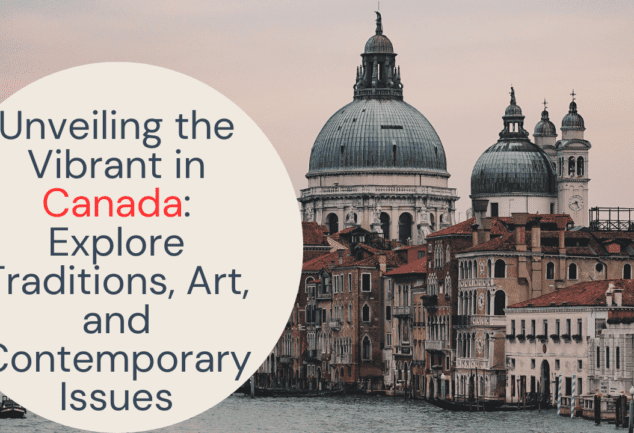
A Comprehensive Guide to Language and Culture in Canada
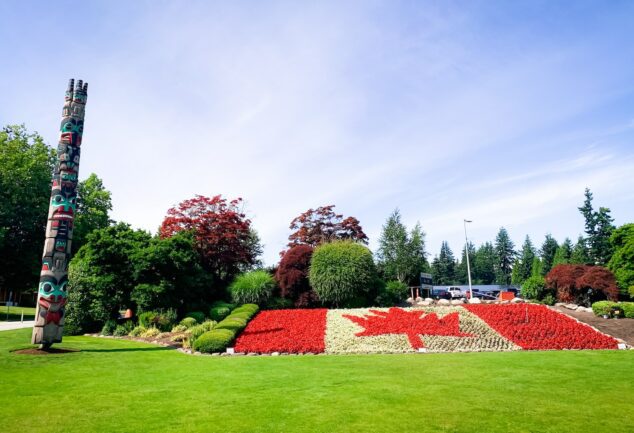
A Comprehensive Guide to Surrey Immigration
Strategies for Health Services Development
In order to address the challenges posed by cultural diversity, Montreal has implemented a number of strategies for health services development. One key strategy is the personalization of care, which recognizes the unique needs and preferences of individuals from different cultural communities.
This includes taking into account cultural beliefs, practices, and traditions when providing healthcare services, as well as offering interpreters and language supports to ensure effective communication.
Additionally, religious accommodations are an essential aspect of health services development. Montreal has made efforts to respect and accommodate religious rites and customs, such as providing prayer rooms or adjusting meal options to meet dietary restrictions.
Another important strategy is the adaptation of healthcare services related to gender. Montreal recognizes that different cultural communities may have varying norms and expectations around gender roles and healthcare.
To address this, healthcare providers receive training and education on cultural sensitivity and gender considerations to provide inclusive and respectful care for all individuals.
This can include respecting modesty preferences, offering same-sex providers or interpreters, or providing information and resources specific to gender-related health issues.
User-centric service delivery is crucial in fostering effective health services in a culturally diverse context. This approach places the needs and experiences of individuals from different cultural communities at the center of service design and delivery.
It involves actively listening and engaging with clients, involving them in decision-making processes, and tailoring services to meet their specific needs. This requires building a strong statistical capacity to collect demographic information and data on the health needs and outcomes of different cultural communities.
By understanding the unique challenges and disparities faced by specific cultural groups, Montreal can develop targeted interventions and allocate resources effectively to improve health outcomes for all residents.
Question of Adaptation Strategies and Prevention Programs
In the context of Montreal, the question of adaptation strategies and prevention programs is crucial to address the challenges faced by immigrants and ensure their successful integration into the city’s diverse cultural fabric.
Montreal recognizes the importance of implementing effective strategies that promote cultural sensitivity and inclusivity in various sectors, including healthcare, education, and social services. Prevention programs play a vital role in this process by focusing on early interventions and educational initiatives to address issues related to health, social well-being, and overall community cohesion.
However, adapting to a new environment poses unique challenges for immigrants in Canada’s largest cities. The process of adaptation involves navigating unfamiliar social norms, language barriers, and cultural differences, which can impact individuals’ access to services and opportunities.
Issues of adaptation range from finding suitable employment to accessing adequate healthcare, housing, and education. To address these challenges, it is essential for cities like Montreal to provide comprehensive support networks, resources, and programming that cater to the specific needs of immigrant communities.
In the context of cultural diversity, immigration procedures and policies on health play a vital role in ensuring the well-being of newcomers. Canada has immigration procedures in place that aim to facilitate the integration of immigrants while taking cultural diversity into account.
These procedures prioritize the health and well-being of newcomers by requiring medical examinations and ensuring access to healthcare services. Policies on health related to cultural diversity recognize the importance of providing culturally sensitive care, acknowledging different health beliefs and practices, and promoting equal access to healthcare for all individuals, irrespective of their cultural background.
These policies aim to bridge the gap between diverse cultural communities and the healthcare system, ensuring that everyone receives appropriate care and support.
Challenges Faced by Immigrants in Canada’s Largest Cities
Immigrating to a new country can be an exciting but challenging experience, particularly in Canada’s largest cities. The process of adaptation brings forth a range of obstacles for immigrants, including language barriers, cultural differences, and unfamiliar social norms.
These challenges can impact access to essential services and opportunities such as healthcare, education, and employment.
To ensure the successful integration of immigrant communities, it is crucial for cities like Montreal to provide comprehensive support networks, resources, and programming that address the specific needs of these newcomers.
Issues of Adaptation to Canadian Cities
Adapting to Canadian cities can be quite challenging for immigrants, especially in a multicultural hub like Montreal. The process of adaptation involves navigating through immigration procedures, cultural differences, and the unique circumstances faced by immigrants in this city.
One major difficulty is the language barrier, as newcomers may struggle with the predominantly French-speaking environment in Montreal. This can hinder their ability to access public services and social support, making it harder for them to integrate and thrive in their new home.
Additionally, visible minorities often face discrimination and prejudice, which further complicates their process of adaptation. For instance, finding housing or securing employment opportunities can be more challenging for immigrants who are part of visible minority communities.
Overall, immigrants in Montreal encounter various barriers that require adaptation strategies and support to overcome and fully participate in the city’s social and economic fabric.
Immigration Procedures and Policies on Health
In Montreal, immigration procedures prioritize the integration and well-being of newcomers while ensuring access to health services. However, it is important to acknowledge the challenges faced by immigrants, as 1 in 5 have reported experiencing discrimination or being treated unfairly in the last five years.
Discrimination can hinder immigrants’ access to health services and impede their overall well-being. Montreal acknowledges this issue and has implemented specific policies and requirements to address the impact of cultural diversity on health services.
Montreal aims to promote cultural diversity and ensure equitable access to health services for all residents, including immigrants. Recognizing the importance of delivering culturally sensitive care, health professionals are trained to understand and address the unique needs of diverse populations. Primary health care services are tailored to provide inclusive and comprehensive care, involving health promotion initiatives targeted specifically towards immigrant populations.
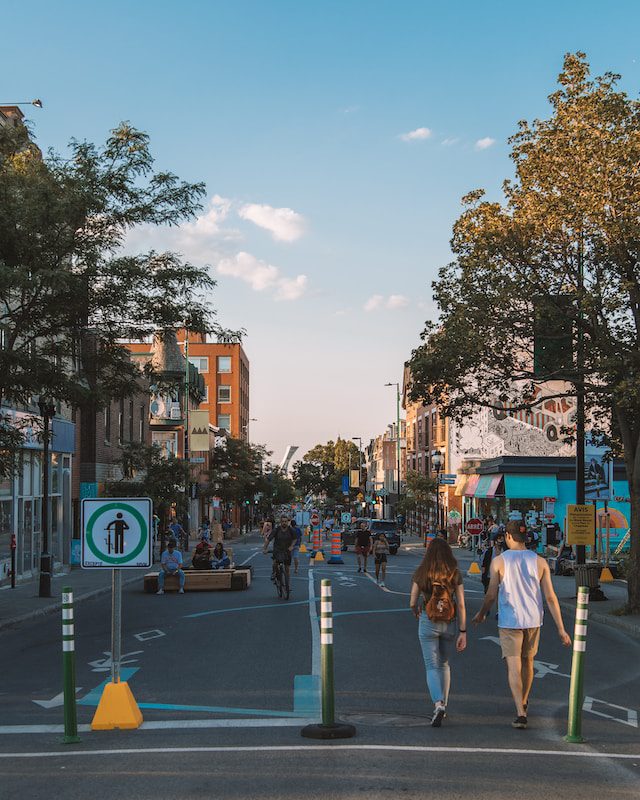

Additionally, policies on health promotion and prevention are developed in collaboration with community leaders and cultural experts to ensure their effectiveness in addressing the specific health needs of culturally diverse communities.
By actively working towards integrating cultural diversity into health services, Montreal strives to create an inclusive and equitable healthcare system. However, ongoing efforts are necessary to address discrimination and ensure that all residents, regardless of their cultural background, have equal access to healthcare services.
Conclusion
In conclusion, the Quebec government’s policy on health and well-being mandates the adaptation of health services to cater to the diverse populations in Montreal.
This policy recognizes the importance of cultural diversity and aims to ensure equitable access to health services for all residents, including immigrants.
Key findings discussed in this article highlight the need for developing prevention and health promotion initiatives specifically targeted towards cultural communities and individuals undergoing immigration procedures.
The article emphasizes the importance of understanding and addressing the unique health needs of diverse populations in Montreal. As such, strategies for adaptation and culturally sensitive care are crucial in providing adequate health promotion and prevention programs.
This includes training health professionals to be knowledgeable about cultural differences and to work collaboratively with community leaders and cultural experts in the development of effective policies and initiatives.
Migration experiences can have a significant impact on individuals’ health. Hence, implementing targeted prevention programs and health promotion initiatives can address the health challenges faced by immigrant populations.
By capturing the unique aspects of migration experiences and tailoring services to address them, Montreal can better support the health and well-being of its culturally diverse communities.
Overall, Montreal recognizes the value of cultural diversity and continues to strive towards being a welcoming city that promotes the health and well-being of all its residents, regardless of their cultural backgrounds or immigration status.
To sum up, Montreal’s cultural diversity offers an incredible experience akin to a global journey within the city itself. The lively neighborhoods, delicious food, and overall atmosphere reflect a genuine celebration of multiculturalism.
Whether you are a local or a visitor, immersing yourself in this rich tapestry of cultures is an opportunity not to be missed.
So, bon voyage as you embark on an exciting journey of discovery through the unique and diverse cultural landscape of Montreal!

